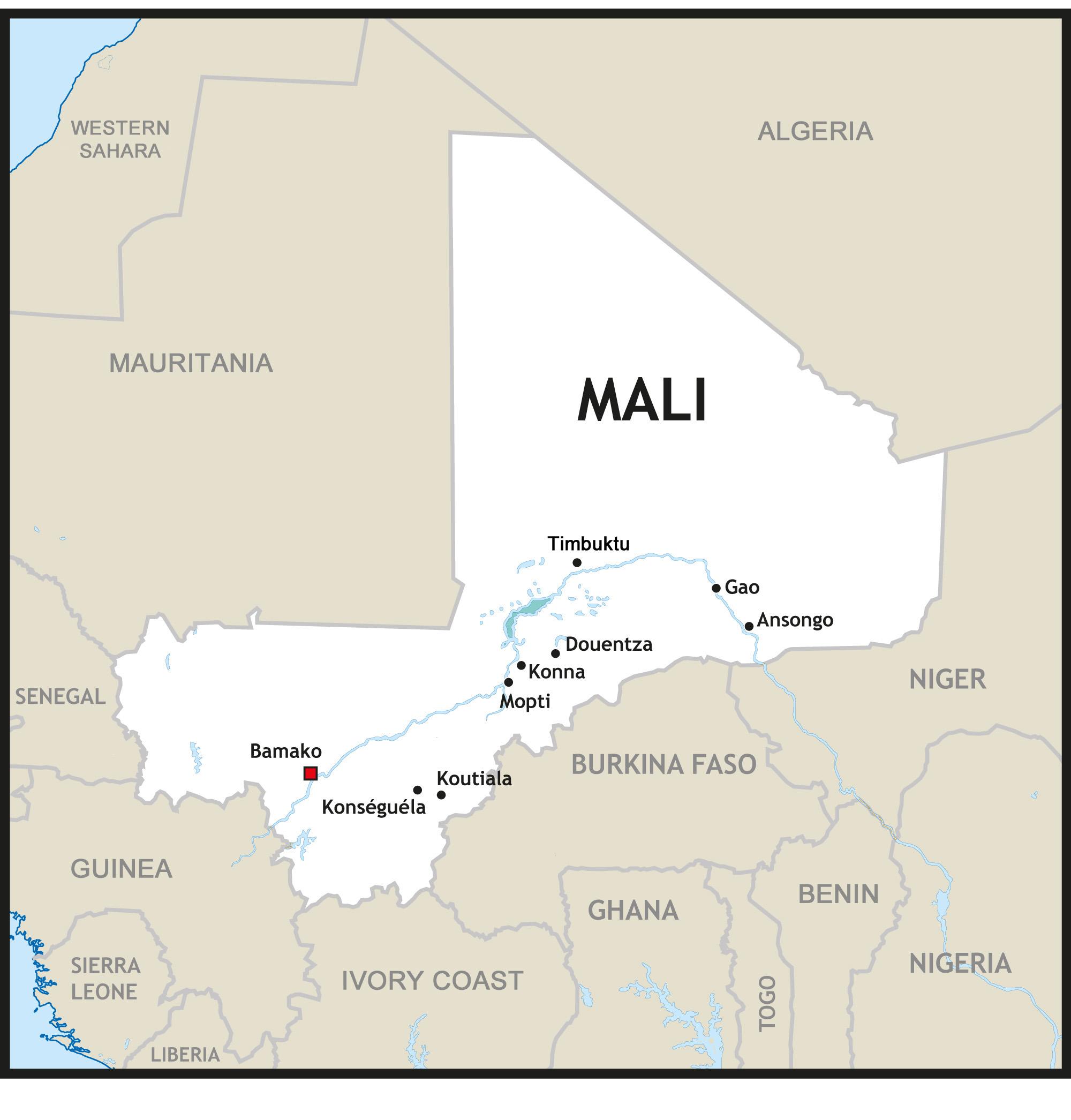Three weeks after military operations began in northern Mali, Médecins Sans Frontières (MSF) continues to provide lifesaving treatment and emergency surgery in the areas of Mopti, Gao, Ansango, Konna, Douentza and Timbuktu .
Vital medical care in Konna, Douentza and Timbuktu
In Konna, the pivotal area between Mali’s northern and southern sectors, where MSF gained access last week, teams have already carried out over 600 consultations. Having set up activities in the health centre after medical staff fled the only medical facility in the town, MSF also treated four war-wounded, three of whom were children injured after playing with an unexploded device. The children were transferred to nearby Sevare hospital after their condition had been stabilized.
In Douentza, further north, MSF medical staff remained at the city’s hospital around the clock during the intense bombing of the city, conducting approximately 450 medical consultations per week. As the situation has calmed, the number of weekly consultations has slightly increased, returning to an average of 500 per week.
On 29 January, doctors also attended to three patients with bullet wounds and referred one patient to Sevare hospital. Mobile clinics remain suspended following confirmed reports of landmines in the area. MSF has increased its surgical capacity and re-stocked its medical supplies.
Over the past 20 days, MSF staff at Timbuktu hospital have treated some 30 wounded patients. MSF also supports nine health centres in the Timbuktu region and medical activities – particularly paediatric, obstetric, emergency and surgical – continue. Teams have conducted some 9,000 consultations in the region since January. MSF has also delivered medical supplies and medicines to the health centres.
MSF has been working in the Timbuktu region for more than 10 months. In 2012, MSF conducted 50,000 medical consultations (approximately one-third were for malaria), admitted 1,600 people to hospital, and performed more than 400 surgical procedures.
Medical assistance in Gao
MSF is working in two health centres in the communities of Wabaria and Sossokoira, in and close to Gao. Activities in a third location, Chabaria, have been temporarily suspended due to security concerns. Each day, medical teams are conducting approximately 60 to 65 medical consultations at each centre. This volume has remained steady even as the conflict has intensified, although MSF has suspended its mobile clinics, which had been providing access to medical care to people who could not reach the fixed sites.
Further south, in Ansongo, MSF is providing basic and specialist care, as well as surgery, in the local hospital, while also ensuring the delivery of supplies and medicine so that teams can respond effectively in the event of an influx of wounded.
Concern for the displaced
In Mali’s interior, possible insecurity, the presence of land mines, travel constraints and communications issues are complicating efforts to assess the health of displaced persons and maintain large-scale humanitarian operations.
The United Nations has recorded 380,000 Malians who are either internally displaced or living as refugees in neighbouring countries since early 2012. More than 150,000 refugees have also fled to Mauritania, Niger, Burkina Faso and Algeria, with some 6,000 new refugees having been registered in Mauritania, Niger and Burkina Faso in January.

MSF works in Mopti, Gao, Ansango, Konna, Douentza and Timbuktu, as well as in the southern part Mali, where it runs a comprehensive paediatric programme in the region of Sikasso. MSF also provides care to Malian refugees in the neighbouring countries of Burkina Faso, Mauritania and Niger.




